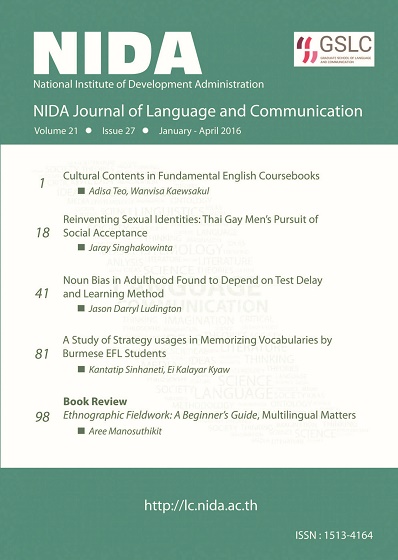A Study of Strategy usages in Memorizing Vocabularies by Burmese EFL Students
Keywords:
vocabulary learning strategies, memory strategies, EFL learners, vocabulary acquisitionAbstract
This study examined how Burmese learners tackle learning new vocabularies and which strategies they use to improve their vocabulary acquisition. This study aimed to promote the concrete understanding of the ways new vocabularies are memorized and to investigate Burmese students learning styles when employing their vocabulary learning strategies. This compares with Oxford (1990) who asked participants their preferred strategies for improving vocabulary acquisition. The data for this study were collected from 100 Burmese EFL learners through two research instruments: a questionnaire and an interview. The results of this study indicate that two main memory strategies for vocabulary learning, rote learning strategies (RL) and creating mental linkage strategies (CML), are used in preference to other memory strategies by Burmese students. Pedagogical implications and recommendations arising from this study are discussed and provided for language learners in EFL contexts.
Downloads
How to Cite
Issue
Section
License
By submitting a manuscript, the author transfers the copyright for the article to School of Language and Communication, National Institute of Development Administration (NIDA), if and when the manuscript is accepted for publication. Though the journal is an open-access, reproduction of any material published in NIDA Journal of Language and Communication for non-personal and/or commercial purpose requires a written permission from School of Language and Communication, National Institute of Development Administration (NIDA).






